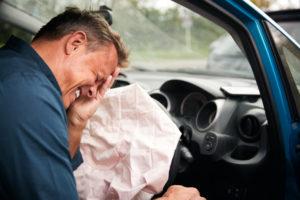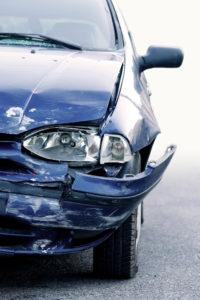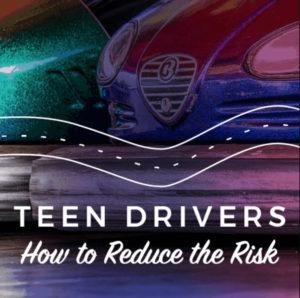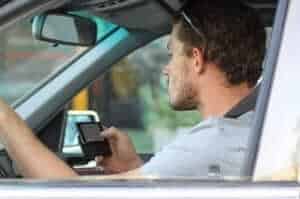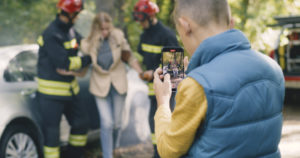
You are not legally required to stop if you witness a car accident. Your assistance and statement as a witness may be extremely valuable, but no one will fault you if you choose to keep driving or walking.
Most people consider it a moral duty to stop and offer help when a car accident occurs. In that case, it is your duty to act in good faith and to maintain your own as well as the safety of others. That includes stopping your car safely, warning other drivers, and calling the authorities.
However, if you’re part of the accident in any way, you are legally required to stop. Notify your insurance agent and lawyer immediately and don’t admit fault for anything. If there are any injuries or vehicle damage exceeding a certain amount, you may be required to also notify the DMV.
Steps to Take If You Witness a Car Accident
If you were driving or walking by and have just witnessed a car accident, do the following:
Your Safety Comes First
If you were driving, stop your car safely at least 100 feet from the scene. Police recommend that you get off highways and find a safe place to park before doing anything else.
Putting enough distance between you and the accident protects you in case there is an oil spill or fire. You should also ensure that other vehicles and emergency personnel can pass safely, so turn on your hazard lights and place safety cones at least two car lengths away facing the traffic.
Call 911
If you are among the first people on the scene, call 911 immediately. Do not assume that someone else has already done so unless you’re sure.
Even if the accident looks minor, you should always notify the authorities. Give as much detail as you can about the accident, your location, and possible injuries. Do let them know if there is a fire, whether recovery is required, and any other pertinent information.
Approach the Scene Carefully
If you deem the scene safe to approach after careful assessment, get closer and check on the victims. Look out for spilled fluids, broken glass, and jagged pieces of metal. If any of the vehicles are still running, turn off the ignition and put it in “Park”.
However, don’t move any of the victims unless there is an imminent fire or further risk of injury. Moving them almost always makes injuries such as lacerations and spinal injuries worse. Instead, try to comfort the victims and assure them that help is on the way.
If you know what you are doing, you can also help to stop bleeding and check for any obstructions to breathing. You can also help to keep the victim warm and perform life-saving techniques such as CPR if necessary.
Record Pertinent Information as Soon as You Can
Accident scenes can be highly emotional. However, you can do a great deal of service if you take note of important details such as the cars’ license plates, the names, contacts, and addresses of the drivers and passengers, and the contact information of other witnesses.
If you have a cell phone, record videos of the scene and take photos. Focus on things like skid marks, damage to the road infrastructure, traffic controls, and visual obstacles.
Remember that memory fades quickly and isn’t as reliable as time passes. Write down your own recollection of the events and record all important information as soon as you can.
Tell the Police What You Saw
Talking to the police does not make you a liable party or a suspect in the accident scene. Be honest as you give your statement and stick to facts—no personal opinions. Also, don’t pass the blame to any of the drivers even if they were clearly in the wrong.
In many cases such as hit-and-run accidents, your witness may help to catch the culprits. Be aware, however, that you may be called upon to testify during a trial.
Upon Request, Provide Your Contact as a Witness
In addition to talking to the police, the victims of the accident may require your contact information as a witness. Insurance agents, the police, and other parties may contact you as a witness if there is a personal injury or wrongful death lawsuit down the line.
For a free legal consultation, call 800-537-8185
Are You Liable for Damages Incurred When Rendering Aid?
No, you are not liable for any damages caused as you render help in good faith to those involved in a car accident. All states have Good Samaritan laws that give you immunity to an extent.
Many people are afraid to offer help to victims of a car accident because of fear of litigation. There is some merit to this, as you can be held accountable for aggravating an injury or causing harm. However, that is extremely unlikely so long as you act in a reasonable manner.
Good Samaritan Laws in an Auto Accident
The law provides that Good Samaritans will be protected from liability when they provide reasonable assistance in an emergency to individuals whom they believe to be injured, ill, in danger, or incapacitated.
The Good Samaritan law is not automatic. It is invoked in the following conditions:
- When the victim/injured person gives their consent (where possible)
- Care is given in an appropriate (not reckless) manner
- The person offering the assistance was not the one who caused the accident
- Care is given in an emergency, and trained help has not arrived
- The Good Samaritan law also applies to qualified personnel such as doctors
Get in Touch with an Experienced Car Accident Lawyer
If you’re involved in a car accident as a victim or witness, it is important to have access to a car accident lawyer. As a victim, you may be eligible for compensation from the at-fault party’s insurer.
If you or a loved one has been in a car accident, the expert team of lawyers at Morris Bart can help. We don’t get paid attorney’s fees unless you win, so call us now for a free case evaluation on all auto accident claims.
Questions?Call 800-537-8185
to find a Morris Bart office near you.


